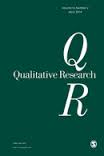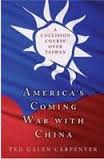I have used some of what I have learned about methodology in an essay I wrote for another module. Methodology part begins at 3.
The State of the Study of China: Towards a Better Understanding of Chinas Rise and Strategic Intentions.
The rise of China is set to be the most important aspect of international relations over the coming decades. ‘The Tragedy of Great Power Politics’ (2001) warned us that US foreign policy in relation to China was both ‘misguided’ and ‘doomed to failure.’ In no uncertain terms John Mearsheimer implored that the US ‘reverse course and do what it can to slow the rise of China.’ (Mearsheimer, 2001, p.401-402)
In the first part of this essay I will attempt to briefly describe how neo realism and offensive realism engineers China into being a threat to the US. I will explain that according to neo realism China has little choice but to develop into a regional hegemon. In the second part I suggest this may have had an adverse methodological effect on how China is studied by the west. Finally, I document some solutions to this problem and warn that while it may not be true that China is ‘unlikely to assume defence commitments beyond its immediate periphery’ (Dobbins, 2012 p.9) claims that China are acting or will act offensively need to be grounded on fair and unbiased social science led research.
- How neo realism forces China to rise
A study of neo-realism says that it ‘posits that the anarchic structure of the international system conditions inter-state relations and that conflict is an enduring possibility’ (Glenn, 2003, p.5). This allows Mearsheimer to predict that Chinas rise will not be peaceful because states ‘seek to survive under anarchy by maximising their power relative to other states, in order to maintain the means of self-defence… they sometimes see aggression as the best way to accumulate more power at the expense of rivals.’ (Mearsheimer, 1990, p.15)
Thanks to Mearsheimer and others, neo realism is of course an enduring idea that seems to explain so much from the past (Mearsheimer, 1990) and helps us form coherent and feasible models for the future (Mearsheimer, 2001).
The past can of course be verified by empirical record. The future, according to the theory, can be predicted as states cannot help but seek to maximise relative power over other states and become regional hegemons in the anarchical international system (Mearsheimer, 2001, p.33-36). No matter how much we abhor this, it is a predefined course of events.
It means one can agree that the world abides by neo-realist rules and at the same time, and until a world government holds sway, wish that it did not. This is what is meant by the works title. It is a tragedy. Going by this explanation China has the reputation it has thanks, in part, to the structural, unalterable conditions we exist in. This must in some ways create and foster a feeling of inevitability amongst believers in the theory and could lead to a culture of failing to properly produce evidence supporting or refuting the proposition.
- How neo realism can restrict our understanding of Chinas rise.
Despite this structural course that proponents of neo-realism and in particular Mearsheimer’s offensive realism suggest, it is perhaps unfair to hastily tarnish Chinas defence strategy with the offensive neo-realism brush. Recent studies can show China to be following the course Mearsheimer sets out, in looking to create a regional hegemon. This can be seen in studies of conventional strategy China is engaged in such as in the recent appraisal of Chinese military ability by Steven Blank. Blank documents recent Chinese military strategy that is supposedly designed to compete with US defence interests in the region and appears to conform to the events neo realism predicts (Blank, 2013 p.245). The issue these and other studies of China have is that given our thorough knowledge of neo realism as an international relations theory that says certain events are structural and unstoppable, the identification of evidence that seems to genuinely and independently support it is very important.
We have a situation where theory, and perhaps stereotypes, are informing data and evidence rather than the other way round. For instance, Blanks’ work on the Chinese military does not fully explore the United States’ control over the major energy silk roads in the straits of Aden and Malacca and the extent to which this affects the arms deal that recently saw China purchase $2Billion of Aircraft and submarines from Russia (Blank, 2013 p.248). It also fails to recognise that 75% of Chinese oil will need to be imported by 2020 (Jacques, 2009 p.325). This should be taken into consideration as perhaps the variable affecting Chinese military spending in this way is the issue over protecting a supply of energy not the development of a Navy that could rival the local US Naval presence and develop its hegemony. Blanks work is therefore incomplete and hastily concludes that Chinas behaviour is threatening rather than defensive.
- Solutions
The problem of influenced research on China has been covered by Yung Wei in a series of points raised in his article ‘Social Science and the Methodology of Contemporary China Studies: A Critical Evaluation’ (1985). It was designed to warn us that theories can be self-fulfilling prophesies and that we should conduct sound social science research to combat, and help guard against it.
He outlines three main issues which influence research into China. These would then suggest we look again at how we know what we know about China and we may be at risk of being misinformed.
Firstly, Wei said there is a tendency by western scholars to take a purely ‘sinological approach’ to the study of the China and these arrive at purely descriptive accounts of Chinese history and culture. (Wei, 1985 p.3). This allows policy makers and lay readers to interpret from this what they want. While this kind of research is helpful and particularly in Chinas case absolutely fascinating, Wei argues that for us to understand China better and to understand the broad discipline of social sciences at its universal level of analysis, future academics should employ social science methodology to the study of China and the Chinese and not continue to be purely descriptive (Wei, 1985 p.10). This would mean Blanks’ disclosure of Sino-Russian military hardware deals should come with deeper social science led exploration as to the reason why.
Studying China in this way then presents some methodology problems and asks fundamental questions such as what is the meaning of China? Do we mean Communist China or Taiwan and China? (Wei, 1985 p.6) It is a question that can be asked of the study of Chinese defence strategy such as when Michael Pillsbury questions the analysis of the PLA and US Armed Forces by comparative means. (Pillsbury, 2001 p.1). The means of study need to be first tested and then set.
Secondly, Wei believes that the misrepresentation of China through research can be due to the wanton and the deliberate distortion of reality. While Wei rightly questions the academic integrity of those guilty of the latter, Wei does cite the factor of McCarthyism in the study of China for US academics in the 1950’s and perhaps the distortion of reality at this time can be excused by the very real threat of imprisonment, blacklisting and personal and professional ruin. (Wei, 1985 p.7). These are hardly accusations that can be levelled at western researchers. There are no repercussions so great that could excuse deliberate and premeditated distortion of evidence today.
Thirdly, and importantly for those questioning whether Mearsheimer’s predictions are having too greater influence on the results of research on Chinas defence spending and military intentions, is what Wei calls ‘orientation’ and while not intentionally distortive, it can be just as damaging. Orientation is the conditions in which the research is being conducted and under what circumstances. While McCarthyism may have made academics intentionally doctor results and conclusions or omit certain information on China. The very real fear and threat of nuclear war throughout the 1950’s and the thought of China developing its own may have subconsciously influenced work produced at the time. This idea is not unique to the threat of nuclear war. Having understood the repercussions of neo-realism and Mearsheimer’s prediction of Chinas offensive rise, a researchers ‘orientation’ maybe biased to such a degree that their findings are formed by the theory instead of the findings supporting the theory.
However, orientation can take different forms. In Kumar Singhs analysis of Chinas defence modernisation from 1949-2005 as part of the ‘Four Modernisations’ he laments the non-western accounting style and lack of breakdown on research and development spending and PLA Navy spending (Kumar Singh, 2005 p.690). This is a legitimate concern where the orientation of a western scholar to want comprehensible and transparent data from which to conduct research is integral to understanding China. It leaves gaps in our knowledge that means attempts to fill it (Luff and Erickson, 2013 p.815) risk the danger of being subconsciously led by neo realist predictions.
In conclusion, Mearsheimer’s offensive realism has an ironic twist. It can structurally predispose researchers to producing evidence in support of it. Only a move to using vigorous and probably quantitative findings can we be sure that evidence in support of neo realism is trustworthy and not affected by the pitfalls of weak research.
References
Blank, Steven (2013) ‘Russo-China Military Relations’ The Journal of the National Committee on American Foreign Policy 35:5 pp 755-785
Dobbins, James (2012) ’War With China’ Survival: Global Politics and Strategy 54:4 pp 7-24
Glenn John (2004) Neorealism Versus Strategic Culture. Ashgate: Aldershot.
Jacques, Martin (2009) ‘When China Rules the World’ Penguin Books: London
Kumar Singh, Bhartendu (2005) ‘The Political Economy of Chinas Defence Modernisation. Strategic Analysis, 29:4 pp 680-706
Luff, Adam and Erikson, Andrew (2013) ’Demystifying Chinas Defence Spending’ The China Quarterly 21:6 pp 815-830
Mearsheimer, John J (1990) Back to the Future: Instability in Europe after the Cold War’ International security Vol. 15(1)
Mearsheimer, John J (2001) The Tragedy of Great Power Politics. W W. Norton & Company: London.
Pillsbury, Michael (2001) Chinas Military Strategy Toward The U.S. A View from Open Sources
Wei, Yung (1985) ‘Social Science and the Methodology of Contemporary China Studies: A Critical Evaluation’ found at http://www.yungwei.url.tw/file/C20.pdf [Accessed 28/03/2014]






